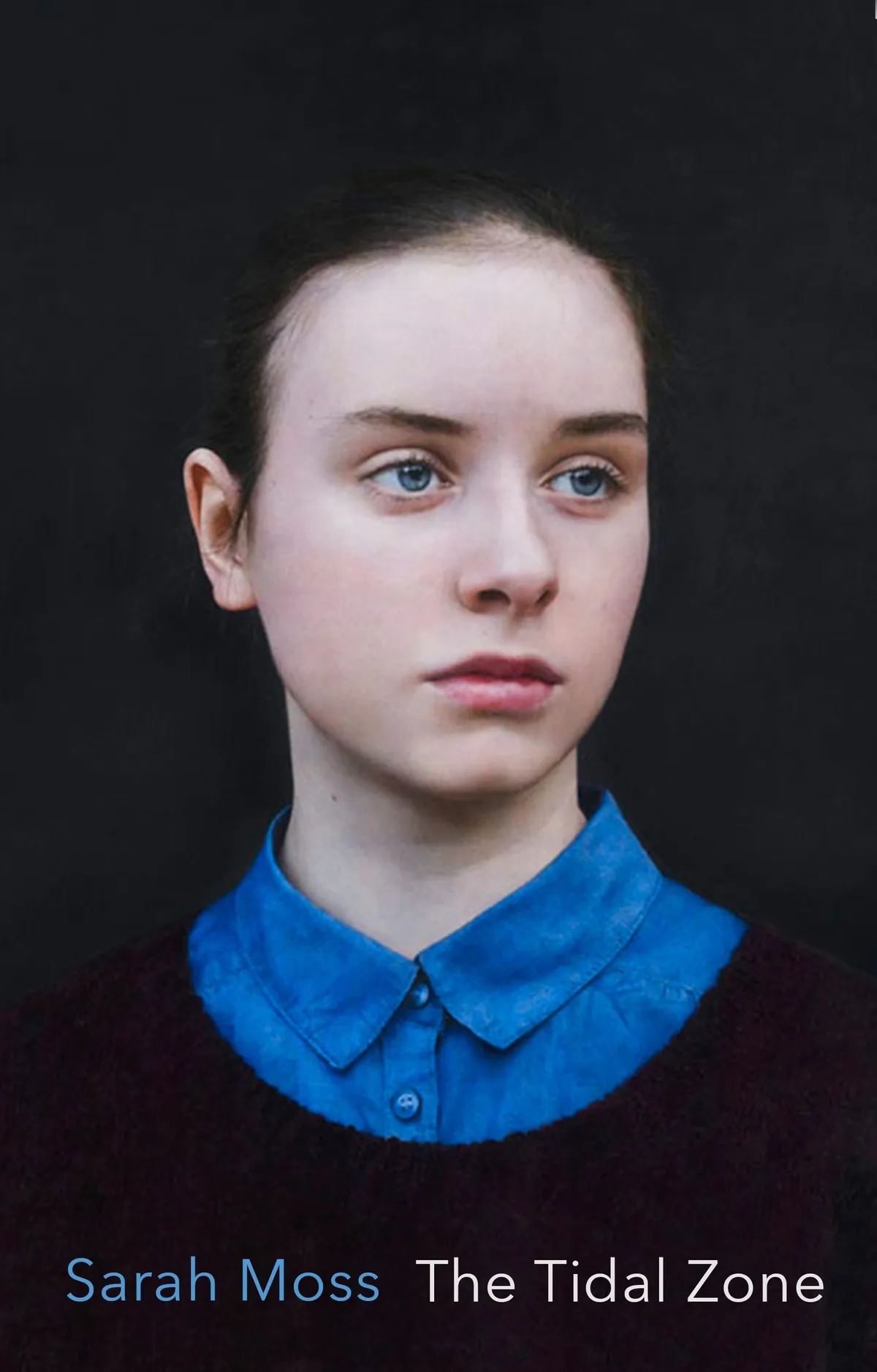The annualWellcome Book Prizecelebrates the best new fiction and non-fiction books that engage with an aspect of medicine, health or illness, and each week until the announcement of the winner on 24 April at the Wellcome Collection we will befeaturing an extractfrom the WBP2017 shortlist here onsciencefocus.com.
See the full shortlist at the bottom of this article, but first read this extract from Sarah Moss'The Tidal Zone, a story of a family whose life is turned around by a mysterious and unpredictable diagnosis when 15-year-old Miriam's body inexplicably fails.
I wasn’t thinking about the bombing of the old cathedral. That would be too neat. I was trying to think about the tapestry. I’ve heard the guides talking about the tapestry to herds of grey-haired people in cardigans and sensible shoes, the sort of people – fate willing, I will become one myself – who take guided tours of cathedrals on weekday afternoons. The tapestry, the guides say, is the biggest one in the world. It is foreshortened from where you stand, but if we took it down and spread it out, it would reach all the way past the choir stalls and the chairs. As if Graham Sutherland had been hoping to win a global competition for square metres woven. I was wondering how to say that the tapestry announces as you walk through the doors that despite its modernist garb the Cathedral, finished in 1967, is in the tradition of English Arts and Crafts. That while it looks unfamiliar, unecclesiastical, to eyes accustomed to stone floors and gothic windows, to marble effigies of local squires, this building is a more conservative reassertion of vernacular and even local tradition than most of its peers in France and Germany. Hand-made, artisanal, another articulation of the English suspicion of the machineries of mass-production which began in our green and pleasant land. It was one of the less pressing problems across Europe in the aftermath of that war, what to do about the smashed churches. To rebuild, as if there could be a return to the old ways, as if it were possible to resurrect what had been lost. Or to leave the broken ruins as a memorial, or memento mori, as if we could never return to and never forget what was lost, as if the condition of mourning were to be made permanent. I was experimenting with ways of explaining some of this without sounding pompous, and wondering how much I was allowed to discuss beyond the material of the building and its contents. I was trying to remember not to write a book, and – suddenly, as how else? – my phone rang.
A mobile number, unknown to my phone. I went up the stairs as I answered. We always do, because there’s not much reception on the ground floor, and so I was on the turn of the stairs, looking up towards the landing, just passing the photo of one-year-old Rose staggering into the outstretched arms of eight-year-old Miriam on the beach at Porthleven. This is Victoria Collier, she said, and it took me a moment to remember that she meant Mrs Collier, Miriam’s headteacher. Still, nothing lurched. Miriam must have argued once too often with her dim English teacher or refused to tie her hair back, one of those venial sins invented by schools to forestall any real rebellion. She’s forever getting detentions, courting them. There’s been an incident, Mrs Collier said, with Miriam. An incident, we found her on the playing field. She got clobbered, I was thinking, someone hit her with a hockey stick or a lacrosse ball, I’ve always hated lacrosse with the balls at head-height, not that Mimi’s given to co-operation with team games, but I could feel fear in my throat, in my ears. Miriam seems all right now, she said, she’s conscious and stable, but she had some kind of faint or – well – collapse. We called an ambulance and she was out for quite a while, longer than they like, so they’re taking her in, just to be on the safe side. In, out, I was thinking, like one of those weather-houses you used to see where the man comes out and the woman goes in when it’s going to rain, or maybe the other way round, but while my mind was working on imagery my body already knew what to do and I was down the stairs, pushing my feet into my shoes, picking up my car keys and bleeping the doors while I unhooked my coat. Can they wait, I said, if she’s conscious and stable can they wait ten minutes. It takes twenty, normally, in the middle of the day with the traffic clear. I got there in eight.
She was all right. That was the first thing I saw. In the cavern of the ambulance she was flat on her back under one of those waffle blankets and there was mud on her face and wires coming out from under the blanket and a bleeping monitor like that of a very early computer parked between her feet like a small dog and she was very pale and her face oddly swollen under an oxygen mask but she was all right. She lifted the mask when she saw me. Hi Dad she said, and rolled her eyes the way she does when she can’t be bothered to rise to Rose’s teasing, as if the whole event were something of a farce. Sorry about the fuss. The mask hissed, like a leak, like an emergency. I looked at the paramedic who was watching the monitor, watching the blood-pressure cuff on Miriam’s arm puffing itself up like a flotation device. In the event of a landing on water, pull the string, blow the whistle. She gets a bit wheezy, I said, she does have asthma. Her mum, my wife, she’s a doctor, a GP. As if that were our excuse. As if having a doctor in the family means you’re allowed to ignore your children’s symptoms, their incidents, until someone else calls an ambulance. Yes, said the paramedic, her blond plait moving on her shoulder as she adjusted Miriam’s blanket that may be all it is. They’ll just check her over at the hospital. We’ll keep that mask on for now, please, Miriam. If you could sit down here, Dad. I’m not your dad, I thought, though later I would get used to it, to the way medics at the same time as being the deities of hospital life adopt the linguistic position of children. They’re quite right, it doesn’t matter what else I might be. Miriam’s dad. I reached for her hand as I sat down and she smiled at me but she was remote under her blankets and wires, too far away to hold my hand.
It was only when they started the siren that I realised I was not as afraid as I should have been. I look back now and see a last moment of innocence, sitting in the back of an ambulance and believing that Miriam was all right.
There was a roomful, a team, of medics waiting for us, gathered around the bed in Resuscitation as if ready to perform a ritual, to transform bread into human flesh. To sacrifice a virgin.
‘Here they come,’ I heard someone say, and then, almost disappointed, ‘Oh, she’s conscious.’
Miriam had tried to sit up on the stretcher but the wires weren’t long enough. She was craning her head to see where she was going and her face was still white and still puffy, her breathing still odd. There was mud in her hair and I wanted to brush it out, to set things right. Lie down for me now, they said, a little prick coming in your arm now, sorry. The fact that they seemed to know what they were doing, what would happen, both reassured and silenced me: there was, plainly, a narrative being followed, and it was only I who did not know what came next.

The full 2017 Wellcome Book Prize shortlist is:
- How to Survive a PlaguebyDavid France(USA)Picador, Pan Macmillan
- When Breath Becomes AirbyPaul Kalanithi(USA)The Bodley Head, Penguin Random House
- Mend the LivingbyMaylis de Kerangal(France) trans.Jessica MooreMacLehose Press
- The Tidal ZonebySarah Moss(UK)Granta Books
- The GenebySiddhartha Mukherjee(USA)The Bodley Head, Penguin Random House
- I Contain MultitudesbyEd Yong(UK)The Bodley Head, Penguin Random House
